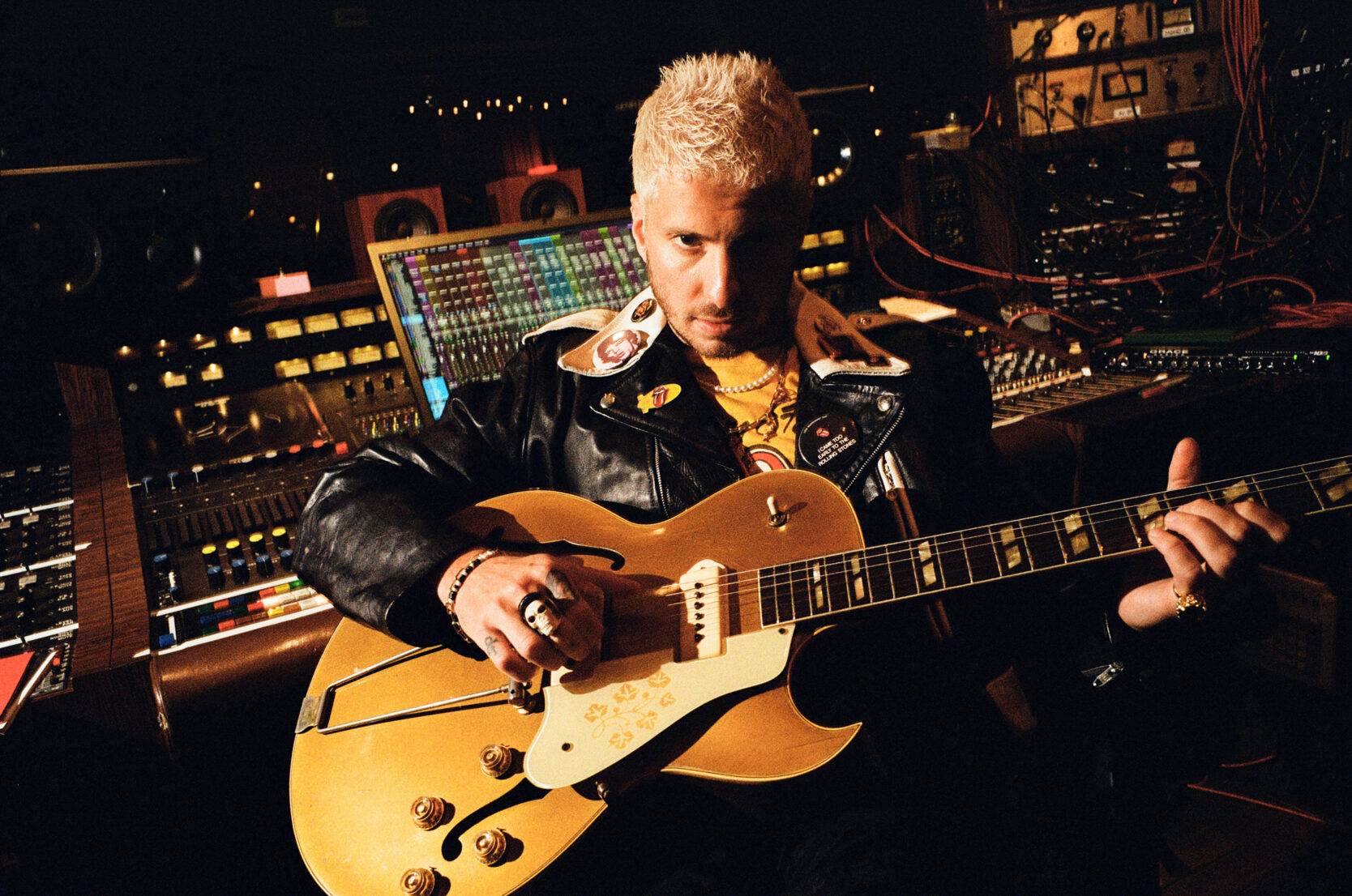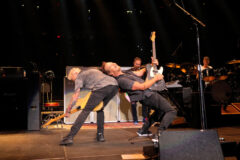In the last four years, Andrew Watt has produced albums for and written songs with a staggering list of superstars, from Paul McCartney, the Rolling Stones, Elton John and Ozzy Osbourne to Justin Bieber, Post Malone, Miley Cyrus and BTS’ Jungkook. But since his music-obsessed childhood in the Long Island suburb of Great Neck, Watt has primarily been dreaming about working with his all-time favorite band, who just happened to play their first show in a dingy Seattle bar two days before he was born on the other side of George H. W. Bush’s America.
The 33-year-old Grammy-winning multi-instrumentalist has seen Pearl Jam live approximately 50 times, and is the first to admit that his life is inextricably linked to their music. It’s a bond now further cemented with Dark Matter, the album they unexpectedly made together. The project is in some ways an extension of Earthling, the Eddie Vedder solo album written and recorded in Watt’s basement Beverly Hills studio in the second half of 2021. As the story goes, Watt got to know Vedder over a multi-year period through mutual friends, and once they finally got together in Los Angeles in May of that year, they began making music together nearly instantly. With Red Hot Chili Peppers drummer Chad Smith, Glen Hansard and Pearl Jam touring member Josh Klinghoffer, Watt is also a a part of Earthlings, the pickup band Vedder drafted to perform his new solo material live.
Amid this flurry of creativity, which found Vedder writing songs on the spot at an uncommonly prolific level, the frontman had a thought: why not invite the rest of Pearl Jam to fly down from Seattle and mess around too? Within days, they’d arrived — with no songs or even instruments in tow. And within minutes of setting up in a circle on gear borrowed from Watt and Klinghoffer, they’d written two superlative rockers, “Scared of Fear” and “React, Respond,” which now serve as the opening one-two punch of Dark Matter.
“It’s made by a fan for the fans, and I hope that they dig it,” Watt says proudly of Dark Matter, which weds the grit, angst and power of Pearl Jam’s classic early albums Ten, Vs. and Vitalogy with a sleek and widescreen modern sound. The hooks on the choruses of songs such as “Wreckage,” “Won’t Tell” and “Got To Give” soar higher than nearly anything the band has done in two decades, while the lugubrious guitar grooves and Matt Cameron’s propulsive, fill-heavy drumming on “Waiting for Stevie” feel like a joyous time capsule from the dawn of grunge.
Watt’s basement setup was ruined last year by incessant L.A. rain, but on short notice, Rick Rubin stepped in to offer him the use of his fabled Shangri-La studio in Malibu, which was owned by the members of the Band in the 1970s and has since hosted everyone from Metallica to Harry Styles and Lady Gaga. Pearl Jam reconvened there for 10 days in March 2023 to write a few more songs and finish Dark Matter — a process completed in just two total sessions compared to the nearly seven-year gestation of its 2020 predecessor, Gigaton.
In a literal dream-come-true moment, Watt had a guitar on during the writing sessions to help the band develop their ideas, and as such became the first non-member ever to share songwriting credits on a Pearl Jam album. “Andrew wanted to make a cross between Vs. and [Soundgarden’s] Badmotorfinger,” Klinghoffer tells SPIN. “He’s come pretty darn close. That first session, when I was there, the songs came together so incredibly fast that you’re hearing Matt’s true first instincts. Everyone was sitting within 10 feet of the drum kit, and it’s so powerful to be in the room with him. You can hear everyone’s absolute excitement in those songs. I think the guys really enjoyed being a tight band, in more ways than one. Andrew made that happen.”
Gossard seconded that emotion in an interview last month, telling SPIN, “I personally think that the experience of working with Andrew was fantastic and I would love another shot at making a record with him. The chemistry we had and continue to have with him is something worth exploring.”
Watt spoke with SPIN about why he urged Pearl Jam to lean on their idiosyncratic songwriting strengths, the power of improvisation and what the experience of working with his musical idols has taught him.
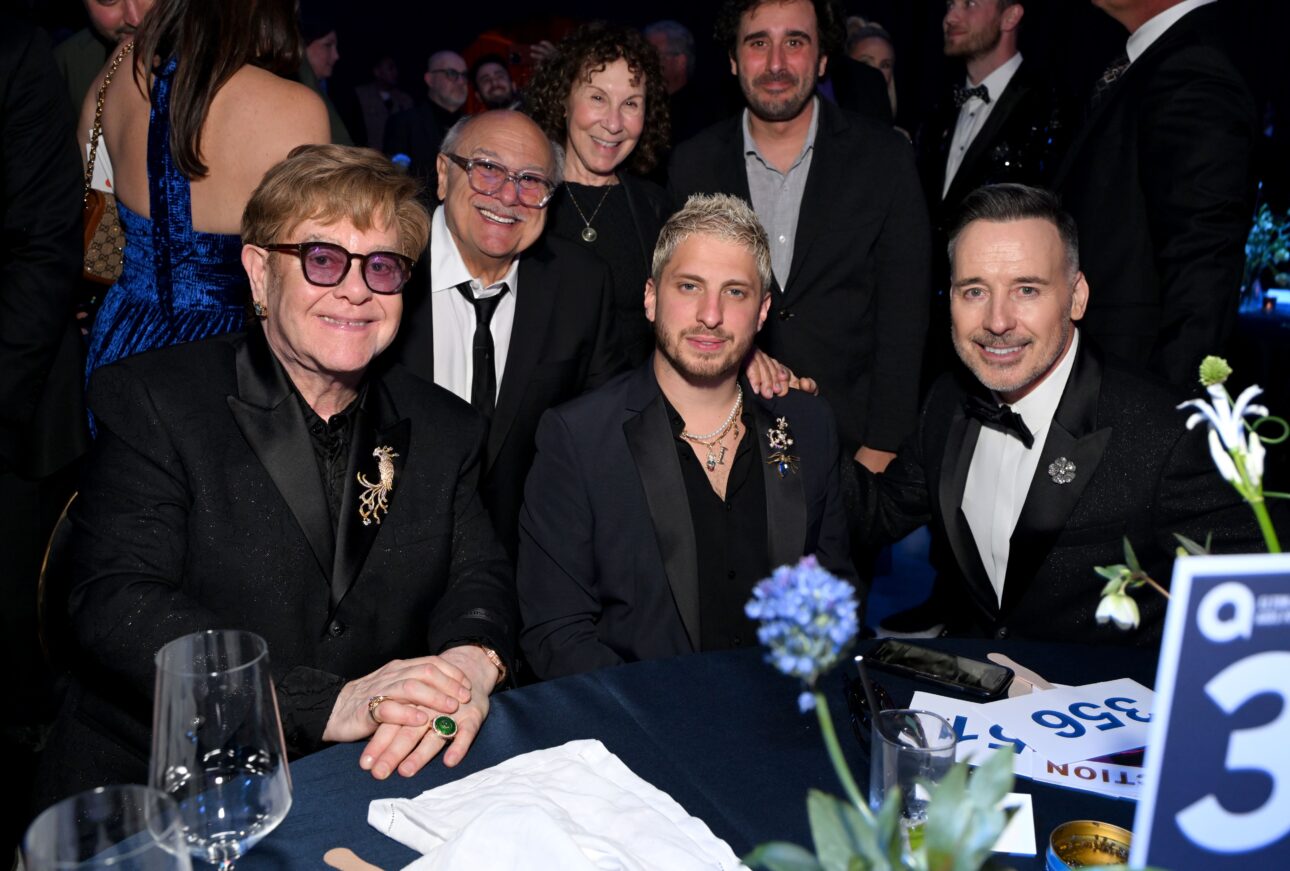
You were already working with Ed on his solo album in the summer of 2021, and at some point, he says, ‘I want to call the Pearl Jam guys and ask them to come down.’ Did anything specific precede that decision?
Well, to know Ed is to love Ed, right? Being the 100% genuine and gracious person that he is in terms of the way he thinks about other people that he loves, while we were working together, his brain shifted to, it’s almost wrong of me to not have this much fun with my guys with Andrew, you know? He was having such a good time and wanted to share that with his band. I think it was just as simple and selfless as that.
And then how long did it take them to show up?
I don’t remember, but for Ed, I think it was kind of quick, like, this is so awesome. I’m going to be here for this amount of time, maybe the guys can come down later this month, and they did.
So, suddenly you’re producing a Pearl Jam record. They’re coming to your house and you’re going to be running these sessions. Where does your brain go then?
Back to being 12 years old, going to a show and holding a sign that said, can I play the guitar solo for ‘Alive?’ I’ve been ready for this gig my whole life. There was no prep needed. What do we want the bass to sound like? Like Jeff Ament. We want the guitars to sound like Mike McCready and Stone Gossard. Let’s go! What was cool is that they didn’t bring anything.
You could easily have said, bring me every demo you’ve written in the past two years, but you went in a very different direction.
I’m a massive Pearl Jam fan. Every member of that band is a great songwriter, a great singer, a great melody writer, a great lyricist, and a great multi-instrumentalist. It’s a band of virtuosos. They all can do everything, including make albums completely on their own. Instead of that process, which they had done so much on the last four or five albums, I wanted to switch it up. I was there to give my opinion and to give my taste as an option. My favorite thing about Pearl Jam, being a true fan, is watching them live. They’re one of very few bands that is even better live than they are on record. They sound bigger and better because there’s no fancy trickery about them in the studio. So, my mission statement became, I’m going to put these five amazing guys together in a small space where they can all see each other, and get them to play together and capture that energy of what happens on stage. Let’s go for full takes. Let’s go for solos that are a little too long. Let Matt Cameron have to turn the bar around in a weird fucking way and everyone’s holding on for dear life and then they land again. That’s the Pearl Jam that I go crazy for. I consider myself such a big fan that I figured, if I liked that, maybe everyone else would like it too?
It wasn’t some big conversation or arm-twisting thing. What was communicated was, come with nothing and don’t even bring a guitar. Andrew’s got everything. Just bring a riff and a B-section. Don’t develop anything further than that. Everyone was in a circle, and it would be like, who’s got a riff? Stone would say, I’ve got one, and start playing it. Ed had a mic right there and started vibing off of it. Stone is kind of like the weird painter of the band. He puts things that aren’t in 4/4 over a 4/4 beat. His riffs are oddball. Jeff takes what Stone does and sometimes plays in literally an opposite direction. He makes beautiful chord symmetry out of Stone’s wacky stuff, which has made it sound special ever since Green River. That started happening, and Mike McCready would solo over all of it. That was the process of how every single one of these songs was made. Because of that, it has a lot of live feel. Once everyone knew the song and the take was finished, that was our last take. We didn’t then go again. As it was figured out, that was the take we used, when it was a little uncertain and a little fresh. That’s why the improvisational energy stayed.
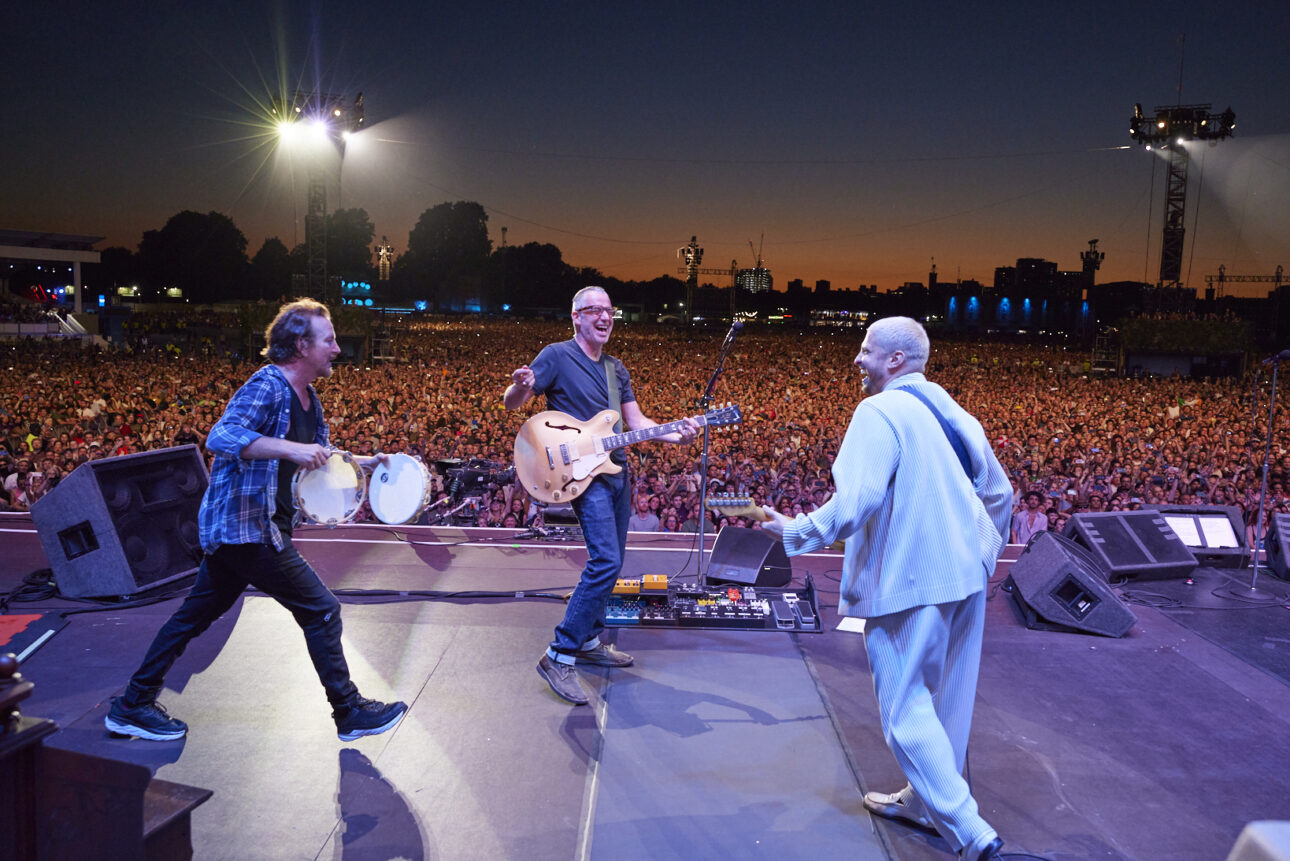
Can you describe the room where you were working?
Unfortunately, it doesn’t exist anymore, because my house flooded during that bad L.A. rain. The studio was molded over and unusable. Rick Rubin did me a solid and cleared out Shangri-La for us to work for the rest of the period at a moment’s notice. It was fucking so cool of him. We wouldn’t have been able to make this record without him and that place. My studio was not a big room. It’s your typical basement. It was originally a home theater when the house belonged to the manager of Charlie Chaplin. We turned this space with concrete walls into a studio, treated it and put speakers up. The amps were upstairs all over the house. The guys were very much right next to each other. We’d track, put the main band down, and if someone had to fix a thing or two, they’d fix it or do some overdubs and make things fuller. Then, Ed would sing. That was it. Same thing every time. It’s not fancy, you know? It’s a fucking band. Let’s hear them play. When you listen to the record, at any point you can close your eyes and say, there’s Jeff, loud and proud. There’s Mike, there’s Stone, there’s Ed.
At first, you’ve got a guitar on and you’re feeling out the songs with them as they come to life.
To be completely honest, that was like a double-sided thing. Since I was a little kid, it was my dream to jam with Pearl Jam. When I was jamming along in the beginning, those guitars are not even on the record. It was just for the pure fucking blissful joy of it, like Charlie in the chocolate factory. I was like Andy in the Chaplin Factory [?], or whatever you want to call it. Then it became, as someone’s got a riff and we’re putting together sections very quickly and Ed is writing to them, it really helped me to know the chords and understand where a section should go. What’s going on musically, riff-wise or harmonically? On every record I ever make, whether I’m playing on it or not, I know how to play the song, because I need to be inside it in order to know what’s right for it. I started out playing in bands, so you don’t really know what you’re doing or how something should be arranged unless you can sit down and play it as a song.
Was there a discussion about how the band wanted this album to sound?
That’s not really the process, you know? Nothing changed from what it sounded like when the band was putting it down. We have good tones. ‘React, Respond’ is a great example. That’s a Jeff riff. He had the A and B sections. So as he’s showing them to us, I’m tweaking the bass sound and getting it gnarly. Especially when you’re working with a band, you’ve got to listen to each other and you’ve got to be willing and open to learn. Matt Cameron knows how he wants his drums to sound. He’s been recording our favorite rock drums for a very long time. The musician that you’re working with guides you to help them get the sound that’s in their head. It’s a very collaborative thing. For Matt, it’s important for it to feel like you’re almost standing over him and can hear the air off the drums. The overheads are a big part of the sound. There are little things you can do to make things more exciting as they’re going and feature those parts. You can hear the way his body moves together on the kit. It’s not like the band put a bunch of stuff down and then all this production was added. The sounds were carved as we were rolling together and the band was very much involved in each getting the sound that they hear in their part. Then, it was our job to make everything speak. I wanted it to stand up against other modern music that’s out now, but it’s very much all five guys.
To my ears, I don’t know that Pearl Jam has ever really allowed themselves to nod to their musical past as they have here. There’s even a moody instrumental intro like ‘Master/Slave’ from Ten.
That was Ed’s idea to have an intro there. He kind of served something up and then Jeff had an idea for it too. It was just very collaborative. They were all so into this. They gave so much of themselves. The album started like this before (hums the opening riff in ‘Scared of Fear’), like, bang bang bang. Of course, I’m thinking of ‘Master/Slave’ after it happened, and then we’re talking about it, and as we talk, it gets to be cousins with that.
I had a conversation with a friend of mine who was like, what’s Matt Cameron in Pearl Jam? Matt Cameron in Pearl Jam is like Temple of the Dog, right? It’s Soundgarden drums over Stone riffs. You also have to remember that Matt Cameron also played on the demos of Ten. When Eddie Vedder went surfing and listened to that original instrumental cassette, he was hearing Matt Cameron’s drums, not Dave Krusen’s. When you’re together for a long time, everyone becomes better musicians and a master of their craft. In Pearl Jam, there was a time where each guy would bring in their demo and already have an idea for the drums. Matt would do what’s right for the song and expand on it a little bit. I didn’t want that to happen here. I wanted each of their instincts to be able to come out fresh and unaltered, and that’s what is on this record, which was written by every member of the band on every song. Every song started with a riff and then went through the filter of each guy together. We were playing ‘Dark Matter’ and Mike was like, ‘Stop, stop!’ He wrote the bridge in two seconds, on the spot in his head. I think they had a lot of fun recording like that.
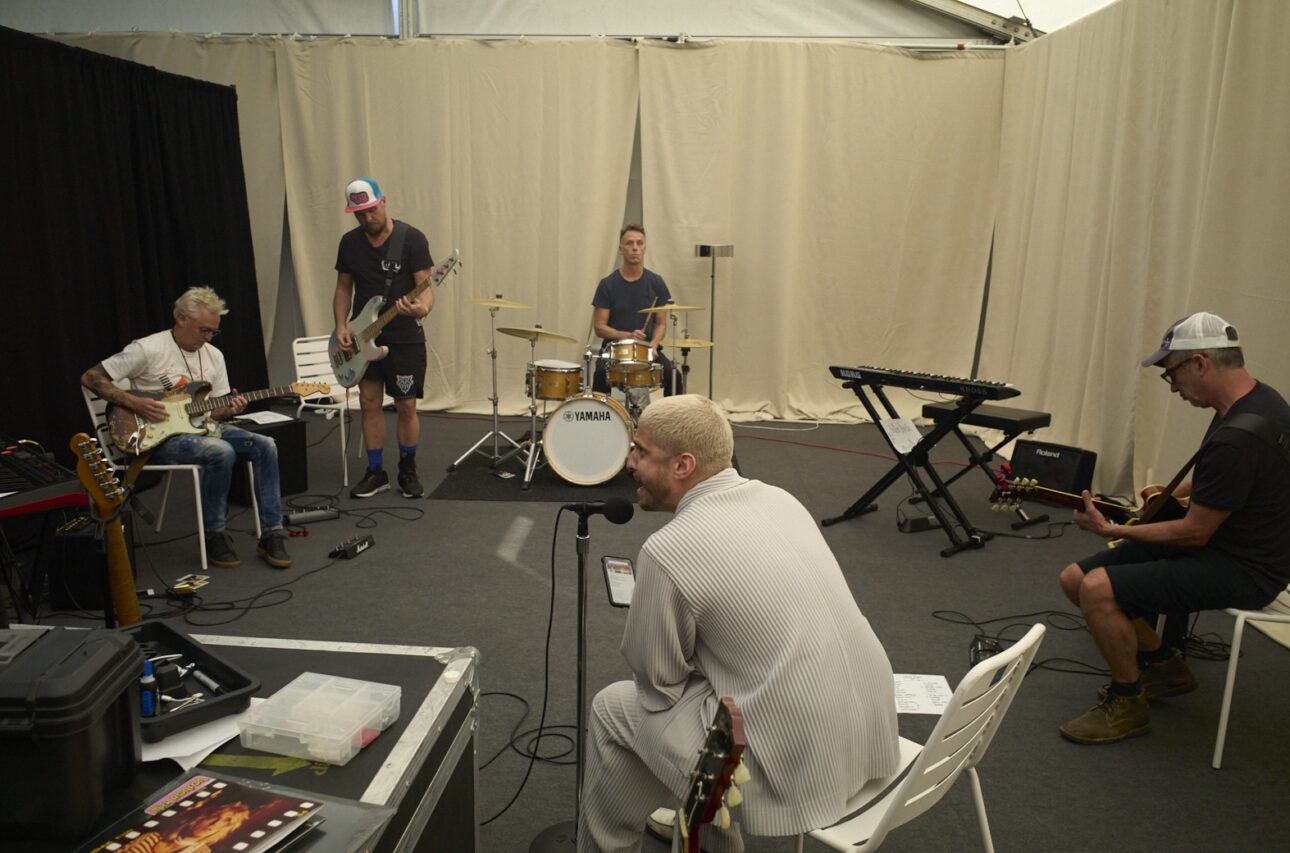
How fun too that they’re playing your gear and Josh’s gear. Were there some specific items that wound up being used a lot?
A guy named Alexander Dumble made the amps. He was a very strange guy who unfortunately passed away in 2022. He made Stevie Ray Vaughan’s amps and countless others. He would refuse to build them for a lot of people but for whatever reason, he agreed to make four for me. They’re all ‘50s Fender mods: a Vibrolux, a Champ, a Deluxe and a High Powered Tweed Twin. Jeff played through a Fender Bassman. We plugged Stone into a Les Paul and a Strat again. Mike played all old Strats and a 1959 Les Paul. Jeff was laughing because he said, no producer ever wants me to play my 12-string. And I was like, play the 12-string! Can you play ‘Jeremy’ on that for me? He wrote the main riff for ‘Dark Matter’ on a 12-string.
It took more than a year-and-a-half from the first session at your studio until you started back up at Shangri-La. Was the band tweaking the songs during that time?
It’s kind of not believable in a way, but so much work was done in such a short amount of time to these arrangements. The band was learning the thing, putting it down and doing a little bit of overdubbing. There was some semblance of a melody that Ed had, and then he would finish the song from a vocal standpoint. So many of those songs from the first week were left in that place where there was just a semblance of an Ed melody and this stuff we’d tracked. So, there was nothing to do with these songs until Ed, from his perspective, had put his words and melodies together. On ‘Scared of Fear’ and ‘React, Respond,’ Ed did his thing right then and everyone crafted them together after that.
‘Wreckage’ was one of the songs that came together at Shangri-La. Can you talk about how it evolved?
That one also started with the riff and everyone kind of formulating sections together. That song just came to Ed right away. Within the first couple takes before the music was even right, his vocals were right. His melodies and words are so strong in that song. Once the initial spark was there and there were a few sections, it was just really about following him. I’m playing a ’54 Telecaster that I got when I was doing the Stones album. Keith [Richards] used that a lot on the record we made and showed me a couple tricks for how to play in an open G tuning. Now, it lives in that tuning. It got brought into the mix on ‘Wreckage,’ so there’s a little bit of crossover on those two albums right there.
The origin of ‘Waiting for Stevie’ is almost too good to be true, in that you and Ed were literally waiting hours for him to show up at your studio to record his parts for a song on Earthling.
We were sitting around with guitars and waiting, and I said, I have this idea. Check it out. He says, that is so fucking weird, because I’ve had this riff for literally years — since albums and albums and albums and albums ago. He showed it to me, and it was almost exactly the same. So, they both kind of melded into each other. We presented that to everyone in the first week, and they all wrote their parts and how the sections would move. It really only became a thing because the thing I showed Ed reminded him of something he’d written that was very similar. The drums on that song are fucking biblical to me. The Matt Cameron dirge! Matt is a pretty stoic guy. He’s like Charlie Watts or something. I was screaming, go harder! Come on! It was like I was at one of their shows or something. At some point, he just had to laugh.
I could definitely see this song being jammed out live.
Oh, yeah. Let McCready go! He would laugh, because something I was screaming from the mountaintops was, this is the return of the Mike McCready guitar solo on a Pearl Jam album. There’s some kind of lead guitar on every song, and on songs like ‘Upper Hand,’ there are two solos. I really love that song. Stone came in with that riff and we jammed it. There were other songs where we’d kind of let it take shape, and once Ed started singing, he’d be like, what if this part doubles? What was cool is that no one presented anything with dry paint. It was all malleable.
You were also able to share this experience with Josh Klinghoffer, who has a writing credit on ‘Something Special.’
Josh, that’s my brother. His talent goes beyond anything comprehensible. Talk about a virtuoso. We had a ball together doing this.
Has there ever been a Pearl Jam song with a gang vocal chorus like on ‘Running?‘
(laughs) [Pearl Jam manager Mark] ‘Smitty’ [Smith] is singing on that one. We needed a gang vocal and I think it was me, Jeff, Stone and Ed that were left at the studio, so we grabbed Smitty, like, we need one more!
Is it possible to quantify what you’ve learned about the members of Pearl Jam through making this record with them?
Well, they love each other so much and it’s such a beautiful thing. I have the most precious pictures of all time of them embracing and enjoying the process of making something really great together. Watching Jeff hear a Stone riff for the first time and then figuring out how to make it singable for Ed. Jeff’s an unbelievable bass player and has only gotten better with time, but sometimes his role is to be the rhythm guitar player because Stone’s stuff is so out there and Mike is surfing over all of it and playing lead. Jeff is the one who’s got to make a base that Ed can cling to. I had worked with Ed before, but he is almost primal in the way that he works. Like, get the fuck out of his way. He’s going to be moving around and putting his whole body into it, and 90% of the song is written in the first 15 minutes of what he’s hearing. The melodies just come to him.
Take the bridge in ‘Dark Matter.’ The riff is (plays riff) very chromatic. Someone like Ozzy would write to that by singing the same melody, but Ed has this way of crafting these brilliant melodies over these weird chords. What he does in a matter of a couple of minutes would take me six months. It’s so natural and unthought that it’s amazing to witness. The power of improvisation is so important in being a great musician. Each of these guys really possesses that.
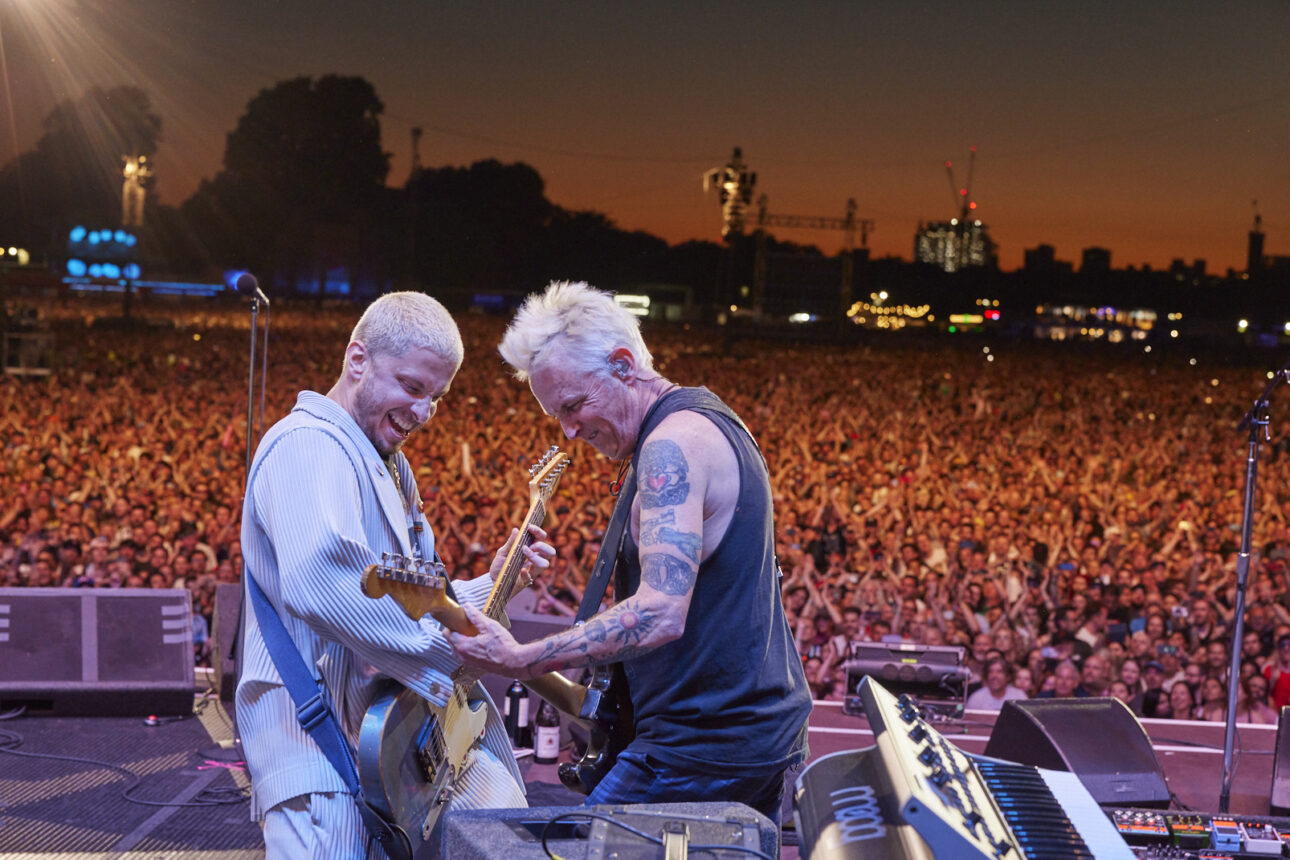
You’ve had a very privileged position in that you’ve been able to watch Ed write two albums worth of material over the past couple of years.
I mean, he’s incredible. He’s at the center of it all. Because of how intensely we were working, he was just flowing. There wasn’t time for me to stop and be like, hey man, what’s this about? His voice means so much to me. It was the voice I’d listen to in headphones as a kid, whether it was ‘Leash’ or ‘Nothingman,’ wallowing in tears and feeling that emotion. I’ve always felt so connected to the words coming out of him and applying whatever he’s feeling in that moment to my own life. There were some moments when songs were being written, and I would close my eyes and instantly go back to my childhood bedroom. I’d open my eyes, and he’s right there, now. All I can say is that the lyrical content is extremely intense and extremely soul-gripping and really, really affected me as we were making this music. It was a very beautiful experience — something that none of us will ever forget and something that I think means a lot to the band.

